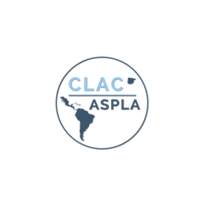Call
The Centro Latinoamericano de Colonia (CLAC) and the Centro Interuniversitario de Estudios Culturales Hispánicos (CeHis) are pleased to announce that inscriptions for the Summer School "Sandinista Culture in Nicaragua – Theories and Testimonials" (17.7. to 20.7.2017) at Wuppertal University are now open.
With the 1979 revolution, numerous interpretations of Sandinismo arose within Nicaragua and around the globe. After the FSLN electoral loss in 1990, Sandinismo faced several waves of reevaluation, which have become more conflict-laden with the neo-Sandinista government in power since 2007. Both theories and testimonials have shaped these different interpretations of Sandinista culture. The changes in culture brought about by the Nicaraguan Revolution have attracted researchers in various fields. Anthropologists, sociologists and historians have looked at the transformation of society, the material foundations, and the cultural configurations; literary scholars have dealt with the political commitment of authors, as well as the educational and editorial politics of Sandinismo; linguists have explored the politics, geography, and history of languages in this area, especially the attitude toward linguistic minorities.
Our Summer School seeks to bring together all these approaches, to open a space for intense reflection on Sandinista Culture in Nicaragua. The methodological ground lies in the domain of Area Studies. We consider Area Studies a useful framework, as this allows for research and teaching across the disciplines. We invite scholars to use their specific expertise and skills to obtain a differentiated insight into Nicaraguan cultures. Beyond that, we also consider the geopolitical impact of Sandinismo on Central America and worldwide. Finally, the summer school format allows for the inclusion of testimonials and cultural production on Sandinista culture.
The Summer School will focus on the topics of
Food: revolutionary consumers and agricultural change;
Gender: icons of emancipation, and the aspitarion to gender equality;
Language: linguistic diversity and diverse literatures.
The exchange between prestigious scholars from various countries is intended to prepare the ground for an understanding of these specific issues and, at the same time, to foster reflection on disciplinary approaches to Sandinista culture. The discussions with well-known activists committed to Sandinismo inside Nicaragua, as well as with representatives of the German solidarity movements will provide opportunities for cultural analysis and expert feed-back. The Program of the Summer School includes keynote lectures as well as seminars and panel discussions. Graduates will have the opportunity to present their research projects as a poster or short talk.
The Summer School will be led by a renowned faculty including Florence E. Babb (University of North Carolina at Chapel Hill), María Teresa Blandón (Universidad Centroamericana / Programa Feminista Centroamericano “La Corriente”), David Cooper (University College London), Alice Froidevaux (Universität Zürich / Lateinamerika-Zentrum Zürich), Ursula Hennigfeld (Henrich-Heine-Universität Düsseldorf), Lutz Kliche, Kirsten Kramer (Universität Bielefeld / Center for InterAmerican Studies), Werner Mackenbach (Universidad de Costa Rica), Maxine Molyneux (University College London / Institute of the Americas), Lorraine Bayard de Volo (University of Colorado, Boulder), Birgit Müller (LAIOS CNRS/EHESS, Paris), Mona Nikolić (Freie Universität Berlin / Lateinamerika-Institut), Gema D. Palazón Sáez (Université Charles de Gaulle Lille 3 / Universitat de València), Natascha Pomino (Bergische Universität Wuppertal), Ruben Quaas (Brot für die Welt), José Luis Rocha (Universidad Centroamericana / Revista Envío), Ileana Rodríguez (Ohio State University / Instituto de Historia de Nicaragua y Centroamérica), Hermann Schulz, Fernanda Soto (Universidad Centroamericana), Rose Spalding (DePaul University).
